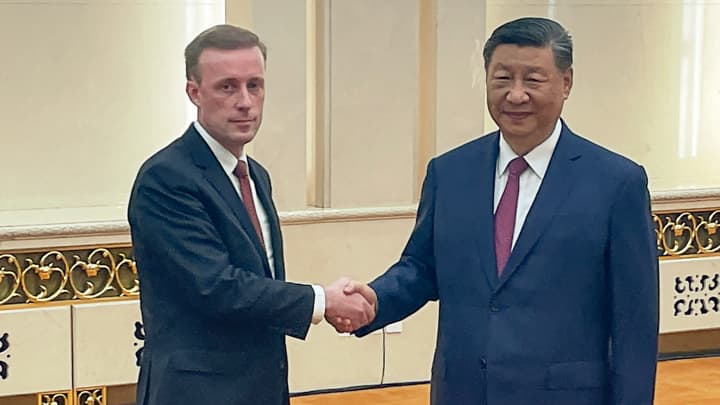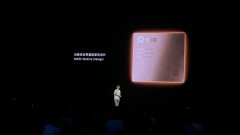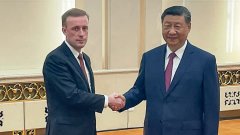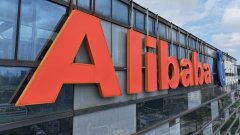
BEIJING — U.S. national security advisor Jake Sullivan said he raised concerns about the country's focus on economic security in meetings with Chinese President Xi Jinping and other officials this week.
Just as the U.S. has cited national security concerns for its own restrictions on Chinese tech imports, China has increasingly emphasized the need to protect its economic security.
Foreign businesses in China have complained of vague data rules and preferential treatment for local players, as well as subsidies that allow Chinese businesses to sell at far lower prices.
Sullivan told reporters Thursday that he had discussed the impact such issues have on Western businesses and supply chains.
"We had a vigorous give and take on the issue, obviously didn't come to agreement," Sullivan told reporters during a press conference at the end of the trip.
Sullivan, advisor to the outgoing Biden administration, said his trip to China was part of an effort to manage the bilateral relationship ahead of the inauguration of a new U.S. president in January.
It comes just over a month after U.S. President Joe Biden dropped out of the presidential race and endorsed his Vice President Kamala Harris as the Democrat nominee.
Sullivan said he told Chinese officials how Harris has been a "central member" of Biden's foreign policy team, and is known to China's top leaders, including having had a meeting with Xi.
The security advisor said Harris "shares" Biden's view for responsibly managing competition so that it doesn't veer into confrontation, and that high-level communication is the way to manage that.
Sullivan arrived in Beijing Tuesday for two days of meetings in his first trip to China as national security advisor. He is scheduled to depart China later Thursday.
Sullivan met with Chinese President , China's top diplomat Wang Yi, and Zhang Youxia, vice chairman of the Chinese Communist Party's Central Military Commission on his visit.
Biden and Xi are planning to in "coming weeks," the White House said Wednesday, and Sullivan indicated to reporters that the leaders would likely meet in person later this year on the sidelines of a multilateral conference.
Earlier Thursday, a statement from Xi said he told Sullivan that Beijing hopes Washington will find "a right way" to get along.
"While great changes have taken place in the two countries and in China-U.S. relations, China's commitment to the goal of a stable, healthy and sustainable China-U.S. relationship remains unchanged," Xi said, according to an English-language release shared by China's Ministry of Foreign Affairs.
Tensions between the world's two largest economies have escalated in recent years, spilling over from trade into finance and technology.
The Chinese leader said Thursday that he hopes the U.S. would view China's economic growth "in a positive" light and "work with China to find a right way for two major countries to get along with each others," according to Beijing. China surpassed Japan in 2010 to become the world's second-largest economy, behind the United States.
The last official trip to China by a U.S. president's national security advisor was in 2016, when Susan Rice traveled to Beijing under the Obama administration.
While the outcome of November's U.S. presidential election remains unclear, being tough on Beijing is a rare issue that both U.S. political parties agree on.
Harris' current national security advisor, Phil Gordon, said in May at a Council on Foreign Relations event that the "China challenge" is much greater than Taiwan, and requires ensuring that Beijing "doesn't have the advanced technology, intelligence and military capabilities that can challenge us."




